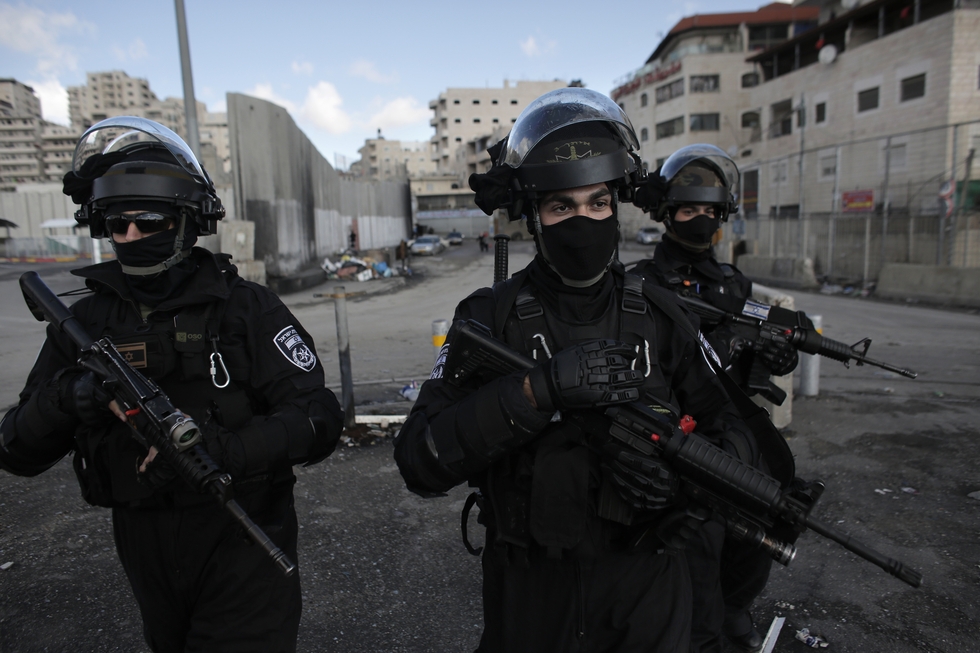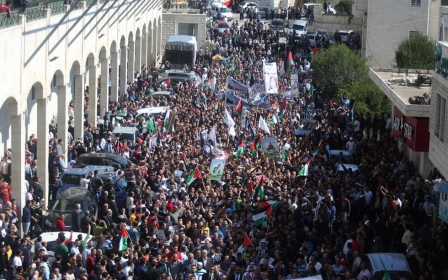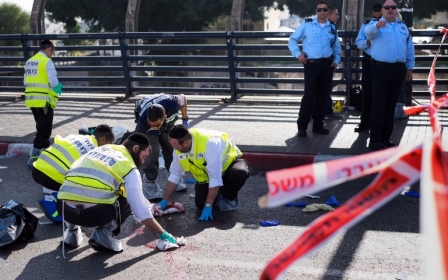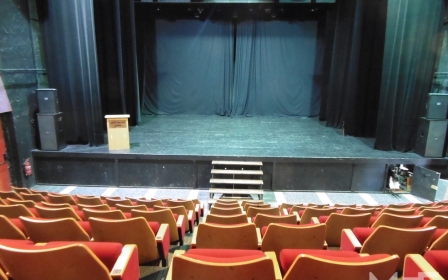Over 1,000 Israeli troops raid Jerusalem refugee camp to demolish home

Over 1,200 Israeli troops stormed the Shuafat refugee camp in Jerusalem on Wednesday morning and blew up the house of a Palestinian man who rammed his car at a light rail stop last year.
Ibrahim al-Akkari, 47, was shot dead by Israeli forces after running over and killing one Israeli soldier on 5 November 2014 in Jerusalem. Thirteen other Israelis were injured. A 60-year-old Palestinian man caught in the attack later died of his wounds.
Israeli judges had issued a demolition order for Akkari’s house a week after the attack, but the order was postponed due to complications with security measures, said the government.
The Israeli Supreme Court rejected an appeal by Akkari’s family to halt the demolition in December 2014.
Israeli Prime Minister Benjamin Netanyahu vowed in October to accelerate home demolitions, despite various human rights organisations and international law classifying the measure as an act of collective punishment.
Speaking before the slated demolition, Israeli police spokesperson Luba al-Samri said in a statement that the police “won’t allow any disturbance of peace by residents, and will firmly defy any such attempts [to demolish the home] regardless of if they are caused by young or elderly people.”
The camp, notorious for its high crime rate, severe government negligence and poor sanitary conditions, is home to around 80,000 Palestinian residents of Jerusalem.
Helicopters hovering in the sky accompanied the troops, leaving the camp under lockdown with residents prevented from going outside. Akkari’s house was then surrounded before it was fitted with explosives and then blown up.
Hatim Abdel-Qader, a resident of Shuafat camp who previously served as a Palestinian legislative minister for Jerusalem, told Middle East Eye that this was “a new war crime committed by Israel against the Palestinian people.
“Israel thinks that these measures will deter Palestinians from the struggle but this will not stop our defence of our land and of Jerusalem,” he said. “Punitive actions by Israel only add more oil to the fire.”
Abdel-Qader said that he will look into the possibility of asking the Palestinian Authority, whose jurisdiction does not exist in Jerusalem, to help the Akkari family financially and materially.
Mohammed al-Rushdi, a resident of the camp, said that the Israeli forces had planned to enter the camp at a time where most of its young men would be at work.
“[The Israeli forces] seized the opportunity and went inside the camp at around 8:30am,” he told Middle East Eye. “What was strange was before that, the checkpoint [which residents must cross if they are leaving the camp] was easy-going and the soldiers manning the checkpoint were very relaxed.”
“Usually raids by Israeli occupation forces occur pre-dawn, but they planned it this time when they knew the men in the camp would be outside of it,” he added.
The Shuafat camp was under total curfew for a few hours. The families living next to the Akkari family home were forced outside onto the street prior to the demolition.
Clashes between Palestinians and Israeli forces ensued after the demolition was carried out, resulting in 43 Palestinians injured, according to the Red Crescent in Jerusalem.
New MEE newsletter: Jerusalem Dispatch
Sign up to get the latest insights and analysis on Israel-Palestine, alongside Turkey Unpacked and other MEE newsletters
Middle East Eye delivers independent and unrivalled coverage and analysis of the Middle East, North Africa and beyond. To learn more about republishing this content and the associated fees, please fill out this form. More about MEE can be found here.




